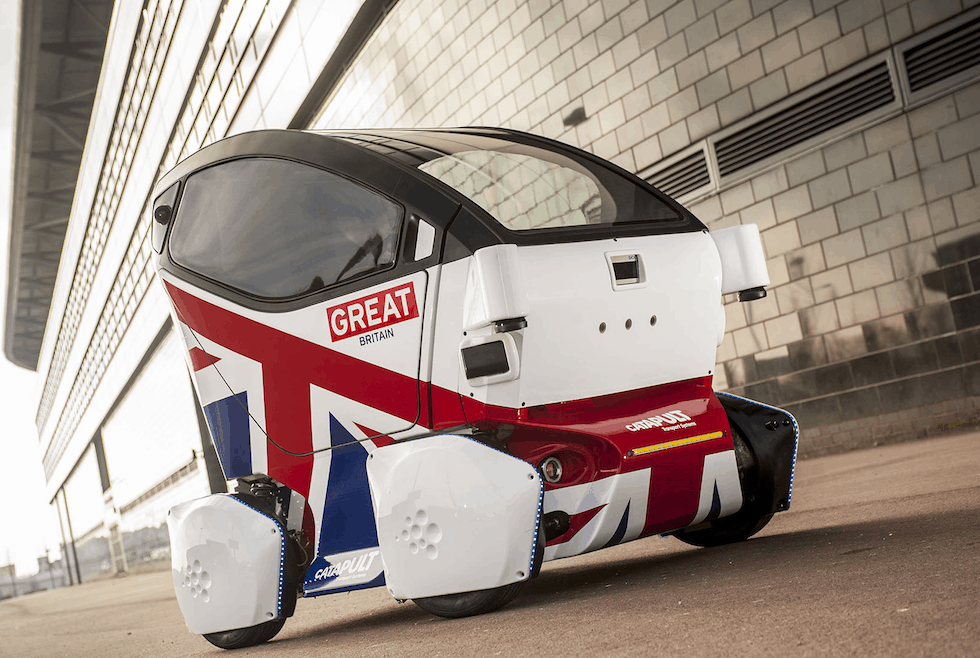Fast track: are tech upstarts forcing the pace of automotive change?
From driverless cars to electric power-trains, the world of automotive technology is changing rapidly. And relative newcomers to the sector are helping to drive this change. Helen Knight reports.
A small, two-seater ‘pod’ travelling at speeds of up to 15 miles per hour around central Milton Keynes may not sound like the future of transportation.

But the electric pods, which undertook their first journey around the town’s public streets in October, are controlled not by a driver but by software fed with data from cameras and Lidar (light, imaging, detection and radiation) systems.
The LUTZ (Low-carbon Urban Transport Zone) Pathfinder vehicles, built as part of a project led by the Transport Systems Catapult (and examined on p38), is just one example of how quickly things are changing in the car industry.
Only a few years ago, technologies such as driverless cars, vehicle-to-vehicle connectivity and electric propulsion were seen as futuristic, fringe concepts.
However, Ford, BMW and Volvo have all now announced plans to bring out autonomous models by 2021, while GM has launched the all-electric Chevy Bolt, with a range of 238 miles on a fully charged battery.
Register now to continue reading
Thanks for visiting The Engineer. You’ve now reached your monthly limit of premium content. Register for free to unlock unlimited access to all of our premium content, as well as the latest technology news, industry opinion and special reports.
Benefits of registering
-
In-depth insights and coverage of key emerging trends
-
Unrestricted access to special reports throughout the year
-
Daily technology news delivered straight to your inbox










National Gas receives funding to develop Gravitricity underground hydrogen storage system
There can't possibly ever be a '<i>business</i>' case for the <i><b>bulk</b></i> storage of hydrogen, since Green hydrogen electrolysis...